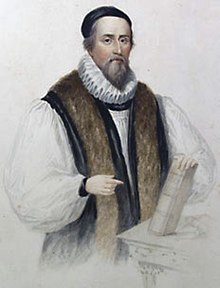“The world is ill-prepared to respond to a severe influenza pandemic or to any similarly global, sustained and threatening public-health emergency.“In certain countries or states, we the last few years have seen a grow in evangelical and Pentecostal churches. Several of those evangelical denominations slid or slipped off to become very conservative or sometimes even very fundamental Christian groups.
The nonpartisan American think tank, Pew Research Center, based in the Washington, D.C. area does polling, research into American social issues, politics, public opinion and demographic trends, If you read any newspaper or watch regular news you see their material, as it is used regularly
In early March of 2020 Pew did a survey of white evangelicals from March 10 through 16. In the United States CoViD-19 was declared a national emergency on March 13, 2020. Here is what Pew says.
Around three-quarters of white evangelicals (77%) say they are at least somewhat confident that Trump is doing a good job responding to the outbreak, including roughly half who say they are very confident. Majorities of white evangelicals say Trump has assessed the risks of the situation correctly (64%) and that the crisis has been blown out of proportion by the media (76%), while just a quarter (24%) say Trump hasn’t taken risks tied to the coronavirus seriously enough.Close to 1,000 students some from high infection areas were encouraged to come back to campus in central Virginia.
By comparison, about half of Americans overall (52%) say Trump has underplayed the risks, including majorities who say this among the religiously unaffiliated (64%), black Protestants (67%) and Jews (73%)
We can notice a blatant disregard to face the facts. Pandemics happen and history is full of them. In the United States they, like in many other places, have pandemics every so often. Influenza, small-pox, measles, scarlet fever, etc… have all happened in the history of the United States from colonial times to current. Many evangelicals do not seem to understand that people should be protected and in many cases also receive vaccinations against such diseases to avoid worse scenarios.
It is incredible that today when one has so much coverage of bad cases all over Europe that several American churches are still calling their flock to meet and want to have big Easter gatherings this weekend.
This irresponsible attitude to ignore the rules of good public health indicates a totally irresponsible attitude without a deep love for other people.
+
Preceding
Using fears of the deadly coronavirus
++
Find also to read
- The unseen enemy
- Making deeper cuts than some terrorist attacks of the near past
- Mel Brooks saying “go home” to Max Brooks
- CoViD-19 warnings
- President Trump shall have to recognise that Immigrant Workers Are Vital to the U.S.A.
- In denial, Donald Trump continues to insist that nothing serious is at hand and everything is in control
- Under-reporting the total number of coronavirus cases
- José Antonio Vergara talking in Esperanto about the outbreak of the epidemic
- Margaret Zaleski-Zamenho from Paris telling in Esperanto about the situation in France
- Coronavirus on March 11 declared a global pandemic on March 31 affecting more than 177 countries
- Europe in Chaos for a Pandemic
- Only a few days left before 14 Nisan
- Even in Corona time You are called on to have the seder
- Observance of the Lord’s Evening Meal
- One Passover tradition asking to provide the less fortunate with foods and help
- In a time when we must remain in our place
- Hosting a Virtual Seder During a Pandemic
- Love in the Time of Corona
- Recrafting our World
- CoViD-19 warnings
- Anxiety Management During Pandemic Days~
- Hope on the Horizon: Pandemic Anxiety Management II~

